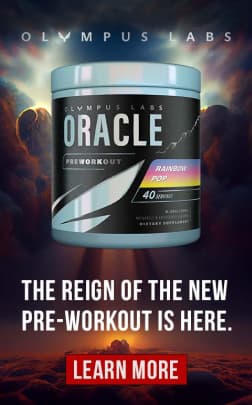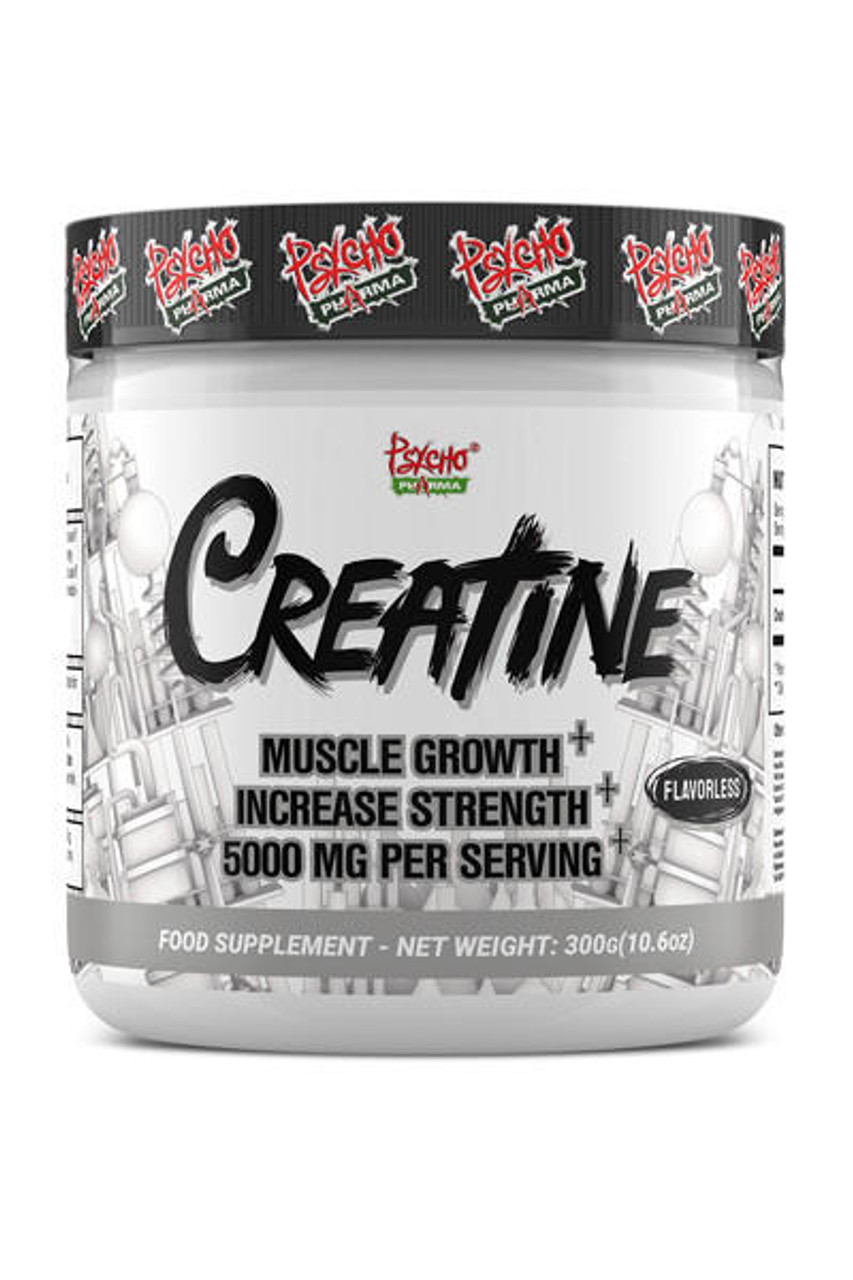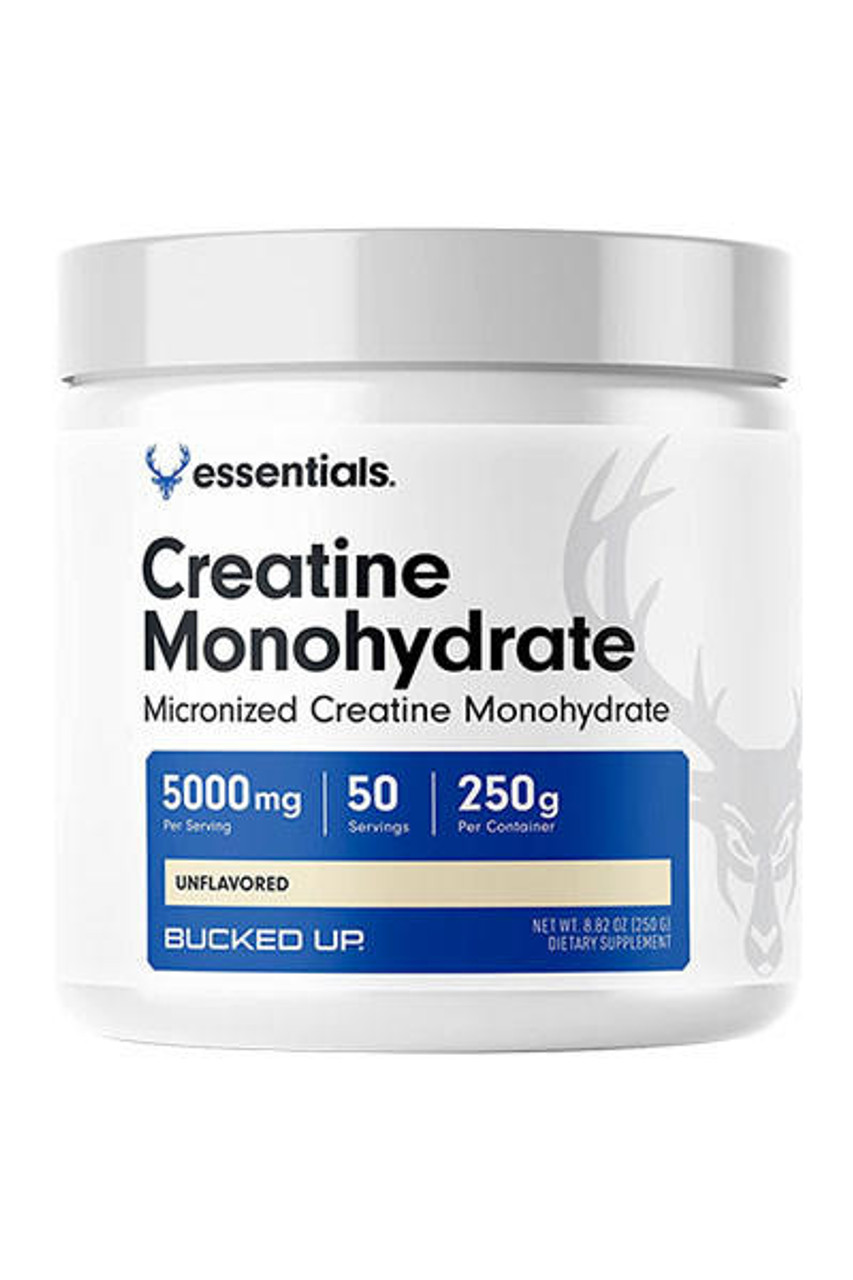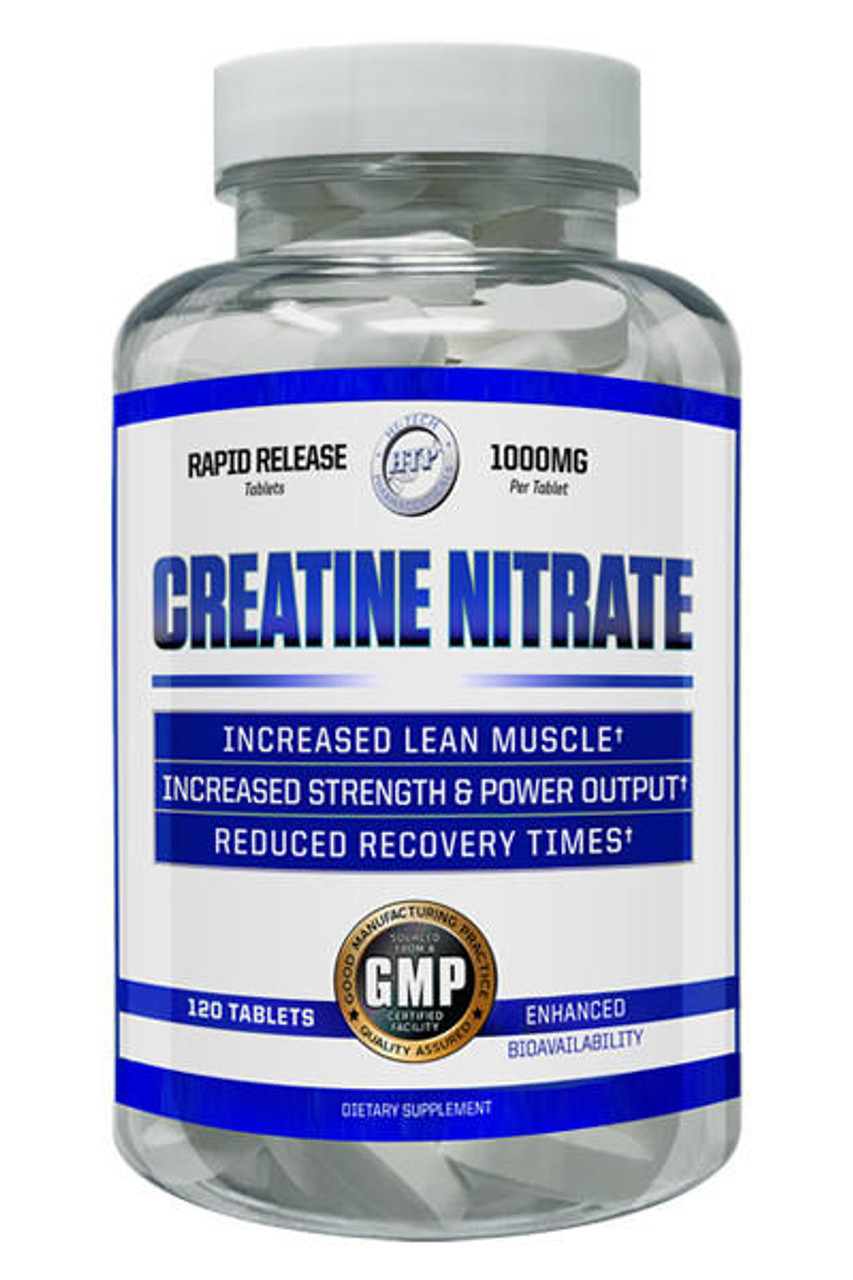The Ultimate Guide to Creatine for Runners: Top 3 Supplements Unveiled
Posted by Leonard Shemtob on Nov 17, 2023
The Ultimate Guide to Creatine for Runners: Top 3 Supplements Unveiled
Runners constantly seek ways to enhance their performance and endurance. One supplement that has gained popularity in the running community is creatine. While traditionally associated with strength training, creatine has potential benefits for runners as well. In this guide, we'll delve into the world of creatine and unveil the top three supplements tailored for runners.
Creatine is a naturally occurring compound found in small amounts in certain foods and produced by the body. It plays a crucial role in energy metabolism, particularly during short bursts of high-intensity activities.
For runners, creatine may offer advantages in terms of improved energy production, faster recovery, and enhanced overall performance.
We'll analyze three leading creatine supplements designed specifically for runners, discussing their benefits, ingredients, and essential factors like purity and effectiveness. This guide aims to equip you with the information needed to determine if creatine aligns with your running goals.
Whether you're striving to beat your personal best or simply aiming to make your runs more enjoyable, come join us on this exploration of creatine for runners. Together, we'll uncover how this supplement can truly enhance your running experience.
[Related Article] Creatine Vs Pre-Workout: Which One is Better?
Short Summary
Creatine's Role in Running: Discover how creatine, typically linked with strength training, has found a place in the running community, offering potential benefits such as improved energy production and faster recovery.
Top Picks Unveiled: Uncover the three top creatine supplements tailored specifically for runners, considering factors such as purity, cost-effectiveness, and additional benefits like hydration support.
Comprehensive Analysis: Gain a comprehensive understanding of each creatine supplement by examining its unique advantages, potential for faster recovery, and overall impact on enhancing the running experience.
Empowering Your Running Goals: This guide aims to empower readers with the information needed to make informed decisions about incorporating creatine into their running routine.
Elevate Your Run with Our Top Pick: Ready to enhance your running experience? Check out our top-recommended creatine supplement, Creatine by Psycho Pharma for runners, and kickstart your journey to improved performance and endurance!
Tailored Creatine Solutions for Every Need: Explore our diverse creatine collection tailored to meet individual needs. Find the perfect fit for your running goals and elevate your performance with creatine that suits your unique requirements.
What is Creatine?
In simple terms, creatine is a natural substance formed by two amino acids, L-arginine and L-glycine. Stored in muscles and the brain, it facilitates rapid energy release during high-intensity activities such as running and weightlifting.
Primarily utilized by muscle cells, creatine plays a key role in generating quick-acting energy. Studies indicate that 95% of the body's creatine is stored in skeletal muscles, with the remaining 5% located in the brain.
While our bodies produce about one gram of creatine daily, a balanced diet without supplements provides an additional gram.
How Does Your Body Use Creatine?
Our bodies use creatine in a complex biochemical process known as phosphorylation. This process converts creatine into adenosine triphosphate (ATP), the primary fuel source for living organisms, including humans. Without ATP, our cells would cease to function, and all bodily processes would grind to a halt.
ATP production occurs through several mechanisms within our cells. The ATP-producing pathway that involves creatine is called the ATP-PC system. This system comes into play each time our muscles engage in high-intensity, short bursts of activity – such as lifting heavy weights, sprinting, or brief periods of rapid uphill running. The energy required for these actions is supplied by the ATP-PC system.
Creatine and ATP-PC also supply energy to the brain and parts of the immune system, highlighting their importance beyond muscle function. In essence, creatine plays a crucial role in fueling our bodies and enabling us to perform a wide range of activities.
Why Do You Need Creatine?
Engaging in high-intensity activities like running causes our bodies to use up creatine faster than we can naturally replenish it. This is where creatine supplements play a crucial role, ensuring we maintain the necessary levels for optimal performance.
Benefits of Creatine
Enhanced Strength, Muscle Mass, and Performance
Creatine supplementation before a workout has been shown to increase the number of repetitions or sprints a person can perform. This boost in workout capacity can lead to notable improvements in strength, muscle mass, and overall athletic performance.
Accelerated Recovery
Creatine's positive impact on recovery is significant, especially for athletes engaged in high-intensity exercises like sprints or weightlifting. It aids in replenishing glycogen, which is crucial for faster recovery and sustained workout consistency.
Injury Prevention
Evidence suggests that creatine supplementation may play a role in preventing bone and soft tissue injuries, along with reducing the risk of cramping by enhancing hydration levels.
Enhanced Cognitive Function
Studies indicate that creatine can improve cognition, especially in older adults during periods of intense mental effort.
Stronger Bones
Research suggests that creatine supplements may help older runners combat age-related bone density decline, promoting stronger and healthier bones.
How Much Creatine Do You Need?
Unlike nutrients with specific Recommended Daily Intakes (RDIs) like calcium and potassium, creatine doesn't have a standardized guideline. Your creatine needs are primarily determined by your activity level.
For highly active individuals engaged in intense training, the International Society of Sports Nutrition (ISSN) recommends a daily intake of 5-10 grams of creatine. Conversely, individuals with lower activity levels or smaller physiques may require considerably less creatine.
The International Society of Sports Nutrition (ISSN) recommends that runners aiming to enhance recovery should regularly consume about 3-5 grams of creatine within 30 minutes after their run.
On the other hand, if you are seeking to boost your performance during workouts, take 3-5 grams of creatine about 30 minutes before exercise. This pre-workout dose can provide an energy boost and enhance muscle performance.
Power athletes, who deplete their creatine stores regularly, have the highest demand. Individuals with certain muscular disorders, such as muscular dystrophy, may also require higher creatine intake.
For vegetarians and vegans, obtaining sufficient creatine directly from the diet can be challenging since it is primarily found in animal protein. However, consuming foods rich in methionine, arginine, and glycine can provide the necessary building blocks for the body to synthesize creatine.
In addition to the regular dosing guidelines, some runners may consider implementing a creatine-loading phase. Creatine loading involves consuming a higher dose of creatine, typically 20 grams per day, for 5-7 days.
This initial loading phase aims to quickly saturate muscle creatine stores and maximize its effectiveness. Once the loading phase is complete, runners can transition to the maintenance phase, which involves consuming the recommended daily dose of 3-5 grams per day.
Creatine loading is not essential for all runners, but it may be beneficial for those who want to experience the benefits of creatine more quickly. However, it is important to note that creatine loading can lead to some mild side effects, such as bloating and diarrhea.
[Related] Creatine Before Bed: Maximizing Your Muscle Gains Overnight
Is Creatine gear?
No, creatine is not gear. Unlike hardcore anabolic gear, creatine is considered safe, even with prolonged use.
A comprehensive analysis conducted by the International Society of Sports Nutrition (ISSN), involving over 500 studies on creatine usage, concluded that there is no scientific evidence of any adverse effect of creatine monohydrate on healthy individuals.
[Related] Is Creatine Natty? Debunking Gym Myths
Who Should Take Creatine?
Creatine's versatility extends to a wide range of runners. Consider incorporating creatine supplementation into your routine if you fall into one of the following categories:
- A runner, engaging in regular strength training sessions each week.
- A sprinter looking to enhance performance.
- Someone actively involved in High-Intensity Interval Training (HIIT).
- A dedicated runner amidst a challenging training cycle, such as preparing for a marathon.
- A master's runner aims to maintain muscle mass.
- A runner, facing injury-induced inactivity or immobility, seeking to preserve muscle mass.
- A marathoner or ultra-runner practicing carb loading, as creatine aids in fluid and carbohydrate retention.
[Related] Should Skinny Guys Take Creatine?
Should Runners Take a Creatine Supplement?
Let's delve into the central question: does creatine benefit runners?
For most long-distance runners and endurance athletes, a regular creatine supplement might not be necessary since creatine is better suited for quick, high-intensity workouts.
However, if you're a sprinter aiming to build muscle or working towards substantial strength gains in the gym, incorporating a creatine supplement could prove beneficial. It may also be advantageous before interval workouts or hill sprints.
Dietary creatine intake varies depending on individual consumption of meat and fish. Runners who regularly consume these foods may already be obtaining sufficient creatine. However, vegan and vegetarian runners may experience greater benefits from creatine supplementation due to their lower dietary creatine intake.
Studies have demonstrated that creatine supplementation significantly increases muscle creatine and phosphocreatine stores in vegetarian participants compared to omnivores. Furthermore, creatine supplementation has been shown to enhance lean tissue mass, muscle fiber area, strength, endurance, and power output on the Wingate test, particularly in vegetarian runners.
This does not imply that creatine supplementation fails to improve exercise performance in omnivores. Creatine supplementation has been shown to enhance the performance of participants regardless of dietary practices, although it increases body stores more significantly in vegetarians.
Creatine for aging runners
Creatine's ability to enhance muscle strength and accelerate muscle growth is widely recognized. This benefit holds particular significance for older adults, as muscle mass and strength naturally decline with age.
Mounting evidence suggests that creatine supplementation, particularly when combined with regular weight training and resistance exercise, can effectively combat age-related muscle loss. The European Food Safety Authority (EFSA) and the European Commission have acknowledged the potential of creatine to enhance the effectiveness of resistance training in muscle strength improvement for adults over 55 years of age.
Beyond its role in combating muscle loss, creatine presents additional potential anti-aging benefits. These include enhancing brain function, reducing inflammation, improving blood sugar control, enhancing bone density, and lowering the risk of bone fractures.
Creatine benefits for runners:
- Elevating performance in high-intensity exercises: Creatine empowers runners to push their limits during high-intensity workouts, particularly HIIT sessions.
- Increased Muscular Strength and Power: Creatine fuels muscle growth and enhances muscle strength and power, enabling runners to generate greater force and perform at their peak.
- Promoting muscle mass growth: Creatine promotes muscle growth, contributing to increased muscle mass and lean body composition, further enhancing running performance.
- Reduced Muscle Soreness and Fatigue: Creatine's ability to minimize lactic acid buildup alleviates muscle soreness and delays fatigue, allowing runners to recover faster and train more effectively.
- Supporting Muscle Recovery: Creatine's role in replenishing phosphocreatine stores accelerates muscle recovery, enabling runners to bounce back from workouts and perform at their best consistently.
- Reduced Muscle Cramping: Creatine's hydrating properties may help prevent muscle cramping, keeping runners on the road and out of the sidelines.
- Reduced Fatigue and Enhanced Energy Levels: Creatine promotes sustained energy levels, reducing fatigue and allowing runners to maintain their intensity throughout their workouts and races.
- Accelerated Injury Recovery: Creatine's ability to promote muscle repair may aid in faster recovery from injuries, enabling runners to return to training sooner.
- Increased Training Tolerance: Creatine enhances training tolerance, allowing runners to handle higher training volumes and push their limits further.
Dietary Sources of Creatine
Creatine is present in various foods, with red meat, poultry, pork, and fish being notable sources. As creatine is primarily found in muscle fibers, animal proteins form the basis of nearly all dietary creatine sources.
Alternatively, the liver can synthesize creatine from its building blocks: methionine, arginine, and glycine. Numerous vegan and vegetarian options provide these essential amino acids.
- Methionine: Eggs, milk, ricotta cheese, tofu, Brazil nuts, white beans, quinoa
- Arginine: Dairy products, pumpkin seeds, sesame seeds, walnuts, almonds, pine nuts, beans, peas, seaweed
- Glycine: Milk, cheese, other dairy products, sesame seeds, pumpkin, pistachios, spirulina, seaweed, watercress, spinach
What Are the Possible Side Effects Of Creatine?
While creatine is generally considered safe and well-tolerated, it's crucial for runners to be aware of potential side effects. Here's a rundown of considerations:
Common side effects
- Gastrointestinal Discomfort: Some individuals may experience stomach discomfort, bloating, or cramping when taking creatine. Staying hydrated and spreading creatine intake throughout the day may help alleviate these issues.
- Bloating: Creatine can cause water retention, which can lead to a feeling of bloating. This side effect is usually temporary and goes away as the body adjusts to the supplement.
- Weight Gain: Creatine can lead to an initial increase in body weight due to water retention within the muscles. While this is not fat gain, runners aiming to maintain a specific weight for their sport should monitor these fluctuations.
- Muscle cramps: Creatine may cause muscle cramps in some people. Staying well-hydrated and ensuring proper electrolyte intake can help prevent or alleviate muscle cramps.
Less common side effects
- Kidney problems: There have been some reports of kidney problems in people who take high doses of creatine. However, these reports are mostly from people with pre-existing kidney conditions.
- Liver problems: Creatine may cause liver problems in some people. However, this side effect is rare and is usually associated with taking high doses of creatine.
Precautions for Runners
Runners should be aware of the following precautions when taking creatine:
- Start with a low dose and gradually increase it: This can help minimize the risk of side effects.
- Stay hydrated: Creatine can cause water retention, so it is important to stay well-hydrated when taking it.
- Monitor your kidney and liver: If you have any concerns about your kidney or liver function, talk to your doctor before taking creatine.
- Avoid taking high doses: High doses of creatine may increase the risk of side effects.
What is the Best Creatine?
When it comes to selecting the best creatine for running, Creatine Monohydrate stands as the original and most extensively researched form. Despite the availability of various types, such as Creatine HCL, and Creatine Ethyl Ester, claims by sellers about their superior absorption or bioavailability lack scientific support.
[Related] Flavored Creatine: Satisfy Your Taste Buds & Fuel Your Gains
Top 3 Creatine Supplements
1- Creatine by Psycho Pharma
Elevate your training and unlock your true athletic potential with Psycho Pharma's Creatine Supplement. This powerful formula delivers a potent 5-gram creatine monohydrate, the most widely researched and scientifically backed form of creatine, to help you achieve remarkable results.
Benefits:
Increases in Strength: The supplement is designed to aid in the enhancement of physical strength. Regular intake may improve power and force generation during workouts, potentially resulting in more substantial strength gains over time.
Increases in Muscle Growth: By incorporating this supplement into your routine, you're providing your muscles with additional support for growth. It may facilitate the development of lean muscle mass, fostering a more sculpted and defined physique.
Helps Improve Endurance: The supplement is formulated to play a role in boosting endurance levels. This means that individuals taking the supplement may experience increased stamina during workouts, allowing for extended exercise sessions and potentially improved overall athletic performance.
Overall Performance Enhancement: The combination of increased strength, muscle growth, and endurance leads to overall improvements in athletic performance. Creatine supplementation benefits athletes of all disciplines, including powerlifters, weightlifters, runners, sprinters, and endurance athletes.
Studies have indicated that creatine supplementation can improve performance measures such as power output, sprint speed, and time to exhaustion.
Key Ingredients
Creatine Monohydrate: Creatine monohydrate, a widely utilized dietary supplement among athletes and bodybuilders, aims to elevate athletic performance, amplify muscle size, and enhance overall fitness. This well-researched compound, a derivative of creatine, a naturally occurring substance found in muscles and brain tissue, has gained widespread acclaim for improving muscle growth, strength, and overall fitness.
Numerous studies have stated the effectiveness of creatine monohydrate in promoting muscle size and strength development, especially when combined with resistance training. Creatine monohydrate's benefits extend beyond muscle growth. It has also been shown to improve high-intensity exercise performance, particularly in activities like sprinting and weightlifting.
2- Creatine Monohydrate by Bucked Up
Unleash your true athletic potential and sculpt the physique you've always desired with Bucked Up's Creatine Monohydrate, the ultimate muscle-building powerhouse. This scientifically backed supplement has dominated the fitness world for years, empowering athletes and bodybuilders to shatter personal records and transform their bodies.
Loaded with premium micronized creatine monohydrate, this supplement guarantees optimal muscle fuel in a highly absorbable and efficient form, ensuring you get the most out of your workouts.
Benefits:
Maximized Muscle Growth: Creatine Monohydrate is renowned for its capacity to promote substantial muscle mass gains. Research indicates that incorporating creatine into your regimen can notably increase lean body mass and muscle volume.
Boosted Strength and Power: Creatine's impact extends beyond muscle size to encompass strength and power gains. Research has indicated that creatine supplementation can enhance both strength and power output, allowing you to lift heavier weights, perform more reps, and execute explosive movements with greater force.
Improved Exercise Performance: Creatine plays a crucial role in fueling high-intensity exercise. By increasing the availability of ATP, the body's main energy source for short bursts of intense activity, creatine enhances exercise performance and endurance.
Accelerated Recovery: Creatine's potential to mitigate muscle cell damage and inflammation translates to faster recovery times and diminished post-exercise muscle soreness.
3- Creatine Nitrate by Hi-Tech Pharmaceuticals
Unleash the full potential of your workouts and redefine your fitness goals with Creatine Nitrate by Hi-Tech Pharmaceuticals. This revolutionary supplement surpasses traditional creatine forms with its remarkable water solubility, enhanced absorption, and remarkable ability to boost energy, strength, and endurance.
According to UCLA research, Creatine Nitrate boasts a remarkable 1000% greater water solubility than Creatine Monohydrate and other creatine derivatives. This exceptional solubility ensures superior absorption and eliminates the traditional side effects associated with creatine supplementation.
Prepare for an unprecedented surge of energy, enabling you to achieve extra reps, conquer additional sets, and surpass previous strength, endurance, or personal bests.
Notably, Creatine Nitrate has demonstrated a significant reduction in the potential for digestive upset commonly associated with Monohydrate and Buffered compounds. Moreover, Creatine Nitrate by Hi-Tech supports remarkable gains in muscle strength, stamina, and fullness.
Hi-Tech has devised a formulation that aids in increasing lean muscle mass and sustaining longer workouts, all without the need for pre-loading as required with Monohydrate.
Benefits
Improved Athletic Energy: Creatine Nitrate helps to boost energy levels and reduce fatigue, enabling athletes to train harder and perform at their best.
Increased Lean Muscle: Creatine Nitrate promotes muscle growth and lean body mass development, helping athletes achieve their desired physique.
Enhanced Strength:Creatine Nitrate enhances muscle strength and power, enabling athletes to lift heavier weights and execute more explosive movements.
Reduced Recovery Times: Creatine Nitrate helps to reduce muscle damage and inflammation, resulting in faster recovery times and reduced muscle soreness.
Increased Nitric Oxide Levels: Creatine Nitrate boosts nitric oxide levels, which increases blood flow and nutrient delivery to muscles.
Improved Vascularity: Creatine Nitrate promotes vein development, making muscles appear more defined and visible.
Boosted Vasodilation: Creatine Nitrate enhances vasodilation, which widens blood vessels and improves blood flow, leading to better muscle performance.
Customer Reviews
 wow
wow
“The best supplement that pumps your muscles moderately and is easy to price”
-Michihiro M.
Creatine for Runners: Frequently Asked Questions (FAQs)
Q: What is creatine, and how does it benefit runners?
A: Creatine is a naturally occurring compound crucial for energy release during high-intensity activities like running. For runners, it offers advantages such as improved energy production, faster recovery, and enhanced overall performance.
Q: What are the benefits of creatine for runners?
A: Creatine benefits include enhanced strength, muscle growth, improved endurance, reduced muscle soreness, injury prevention, cognitive function, and stronger bones.
Is creatine a protein?
Creatine is an amino acid and differs from a complete protein. While proteins contribute to the development of muscle tissue, creatine specifically enhances muscle mass and athletic performance.
Q: Will Creatine Make You Gain Weight?
A: Creatine may cause an increase in body weight, primarily due to water retention during the early stages of supplementation. It's crucial to note that this weight gain is not indicative of fat accumulation.
Instead, it's associated with improved hydration, muscle function, and performance. Individual responses may vary, but the initial increase in body weight stabilizes over time.
Q: Does creatine have potential side effects for runners?
A: While generally safe, creatine may cause mild side effects like gastrointestinal discomfort, bloating, and muscle cramps. Runners with kidney or liver concerns should consult a healthcare professional.
Q: Should You Take Creatine Before or After Running?
A: As of now, the available research does not provide conclusive evidence regarding the significance of timing in creatine supplementation. The decision on when to consume creatine in relation to running sessions may depend on individual preferences and goals.
[Related] Taking Creatine on an Empty Stomach - What You Should Know!
Conclusion
In essence, creatine is a valuable supplement for runners, offering benefits like enhanced strength, accelerated recovery, and improved endurance. Among the different forms of creatine available, creatine monohydrate and creatine nitrate have emerged as popular choices. While both forms offer similar benefits, they differ in certain aspects, including water solubility, bioavailability, and potential side effects.
Creatine monohydrate, the most extensively studied and widely used form of creatine, has been consistently demonstrated to promote muscle growth, enhance strength and power output, and improve exercise performance.
Creatine nitrate has garnered attention due to its enhanced water solubility and bioavailability. Additionally, creatine nitrate has been shown to exhibit a lower risk of gastrointestinal side effects often associated with creatine monohydrate.
Ultimately, the decision between creatine monohydrate and creatine nitrate depends on individual preferences and priorities. Both forms offer significant benefits for enhancing muscle growth, strength, and athletic performance, and the choice should be based on personal needs and goals.
Sources:
https://www.strongsupplementshop.com/creatine-by-psycho-pharma
https://www.strongsupplementshop.com/creatine-monohydrate-by-bucked-up
https://www.strongsupplementshop.com/creatine-nitrate-by-hi-tech-pharmaceuticals
Written and Sponsored by Leonard Shemtob
Leonard Shemtob is President of Strong Supplements and a published author. Leonard has been in the supplement space for over 20 years, specializing in fitness supplements and nutrition. Leonard appears on many podcasts, written over 100 articles about supplements and has studied nutrition, supplementation and bodybuilding.
Leonard's articles have been published in many top publications around the web. Leonard enjoys weight training, playing basketball and yoga, and also enjoys hiking. In his free time he studies and works on improving himself. For more detailed information, visit his official blog.





